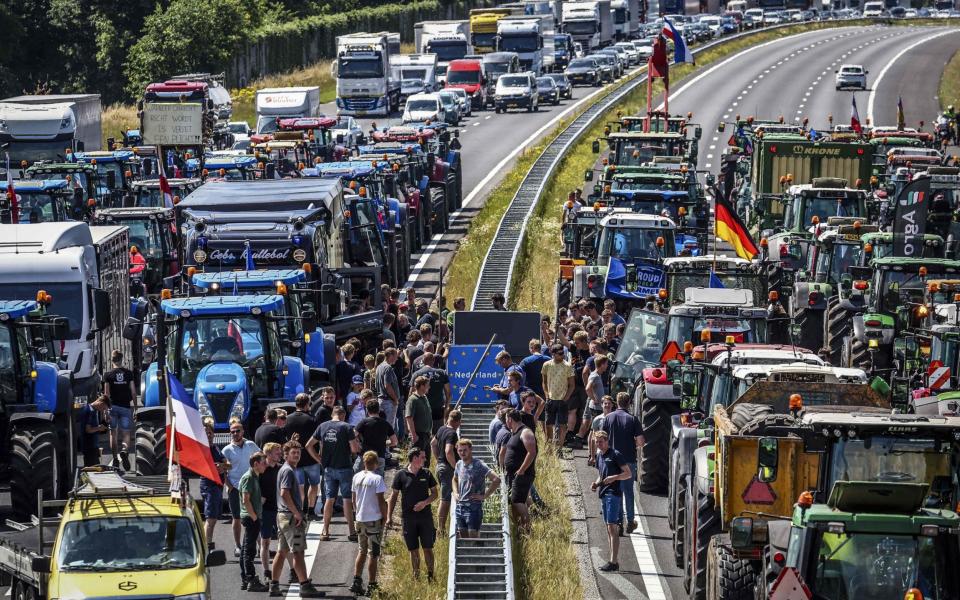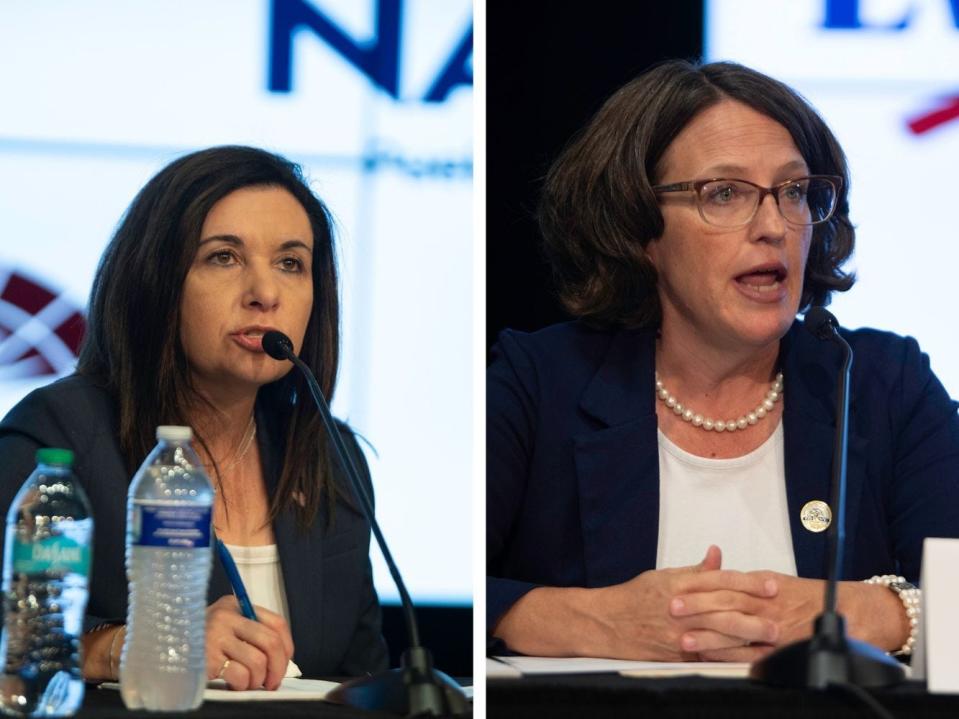Rebel farmers are threatening to blockade ports and starve supermarkets of food in protest against Labour tax rises.
A number are also plotting to withhold produce and livestock in a bid to trigger food shortages, The Telegraph has learnt.
It is a significant escalation in what has been a fierce backlash to plans announced by Rachel Reeves.
The Chancellor placed a 20 per cent inheritance tax on farmers’ assets worth more than £1 million in her first Budget. Previously, tax breaks designed to allow family farms to pass down the generations were exempt from the divisive 40 per cent duty.
The tax rise has fuelled fears that ordinary family farms will be forced out of business, with warnings that it will hit Labour in rural areas in next May’s local elections.
Some farmers are now openly discussing plans to take a more radical course of action. One farmer said that they were aware of discussions about possible blockades of port and food distribution centres.
“They will block every port in the UK if they have to,” they said. “[This] could be a possibility to slow down the supply in the supermarket. The Government and supermarkets need to realise the control we have as farmers. The good thing with that is you have farmers everywhere so you can cover all the ports.”
The move to blockade ports would mirror widespread protests across Europe earlier this year, where farmers used their tractors to barricade the Belgian port of Zeebrugge, as well as the routes to several ports in Germany.

The protests – which were against low food prices, burdensome red tape and trade with non-EU member states such as Ukraine – also took place in France, Spain, the Netherlands and Poland, where farmers used their trucks and tractors to block roads and border crossings.
Following the wave of protests, farmers won a number of concessions, including the scaling-back of rules to protect nature, limiting the import of tariff-free Ukrainian grains and scrapping proposed environmental legislation.
Clive Bailye, the founder of the Farming Forum, the UK’s biggest agricultural online forum, said that some farmers were looking at other actions, “from not taking sewage sludge to not letting food leave the farm or sending livestock to market. I can see produce being withheld”.
He said that although they were “very worried about going to prison” he felt his position as founder of the Farming Forum put him in a strong position to help, adding: “We know we need to do something but we are not sure what it will look like yet. But I’ve got thousands of messages from farmers asking me how, when, where.”
The Telegraph revealed last week that some farmers were threatening to stop spreading sludge on their land in protest at plans to impose inheritance tax on their estates.
They are discussing plans for a co-ordinated “sewage strike” in a move that risks causing chaos for water-treatment companies and creating a mountain of waste.
Biosolids – commonly known as sewage sludge – are what remains of human waste after liquids have been removed, and are a highly effective fertiliser. Every year, farmers in the UK take about 3.6 million tonnes of sewage sludge from water-treatment plants and spread it on agricultural land.
The arrangement between farmers and water companies is mutually beneficial, saving sewage processors the cost and environmental impact of disposing of it.
Tom Bradshaw, president of the National Farmers Union (NFU), said that his members felt “betrayed” by Sir Keir Starmer, whose charm offensive with countryside voters led to Labour winning dozens of seats in rural constituencies.
Mr Bradshaw said that farmers who expected to live longer than five years were now pinning their hopes on Labour’s defeat at the next election, particularly now that the Conservatives have promised to reverse the policy.
The NFU has organised a lobbying event later this month in Parliament where members will hold meetings with their MPs – but the union declined to back a mass demonstration in the capital on the same day, telling its members that unless they have registered for the parliamentary event they should stay away.
This has led to farmers planning a breakaway protest in a sign that they are feeling frustrated with their union’s ability to make their voices heard.
Before the general election, Labour promised to build a “new relationship with the countryside”.
But Mr Bradshaw said that now “it feels anything but”. By his count, up to a quarter of Labour’s 402 MPs represent rural or semi-rural constituencies, having convinced voters that the party could work in “genuine partnership” with countryside folk.
“I had a meeting with farmers this week and they are absolutely irate,” he said.
“If they hadn’t said they weren’t going to do it, there would still be dismay but not the sense of betrayal.
“Anyone living longer than five years is thinking, will a future government do something different? The leader of the opposition has said they will overturn it.”
He also said he is concerned by talk of militant action by some farmers, saying: “The bit that really worries me is that there is a part of the industry that is talking about more militant action.
“That is not the farming industry – we are a peaceful, respectful industry. But I understand the strength of feeling.”
A government spokesman said: “With public services crumbling, a £22 billion fiscal hole inherited from the previous government and 40 per cent of Agricultural Property Relief going to the 7 per cent of the wealthiest claimants, we made a difficult decision to ensure the relief is fiscally sustainable.
“Around 500 claims each year will be impacted and farm-owning couples can pass on up to £3 million without paying any inheritance tax – this is a fair and balanced approach.”
EMEA Tribune is not involved in this news article, it is taken from our partners and or from the News Agencies. Copyright and Credit go to the News Agencies, email news@emeatribune.com Follow our WhatsApp verified Channel




